Hundreds of deaths in India’s farmers’ protests leave families struggling to cope
Unions say more than 600 farmers have died in the last 11 months while taking part in ongoing protests against the Modi government’s three farm laws. Sravasti Dasgupta meets families who have lost loved ones in Punjab
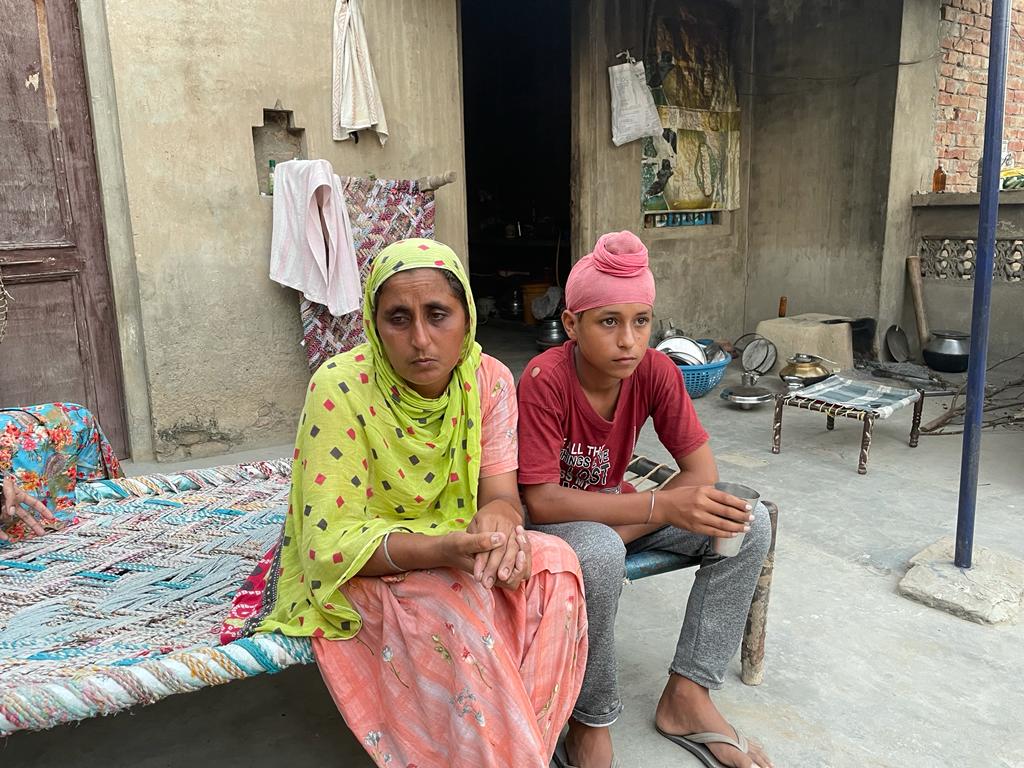
Happy Singh, 23, was a “natural farmer”, his mother recalls, and represented a bright future for this family living off the land in northern India’s Punjab state.
Yet Happy was also among the millions of Indian farmers who felt compelled to march to the national capital Delhi to protest against a set of reforms, passed more than a year ago, that represent the biggest change to the agricultural economy for decades.
The long-running protests have once more come under the spotlight after a deadly incident in Uttar Pradesh state, where a group of drivers, allegedly including a minister’s son, ploughed into a group of demonstrating farmers. Four were killed, and another four people, including a journalist, died in subsequent violent clashes.
Farmers’ unions say that, since they began 11 months ago, the protests have claimed the lives of at least 600 farmers who would otherwise have been at home tending to their crops.
Many, like Happy, are from the agrarian state of Punjab, where the protests began. The 23-year-old was far from home, at the Tikri border entering Delhi, when he suffered what is believed to have been a heart attack and died in January this year.
His mother, 45-year-old Baljinder Kaur, speaking to The Independent from her home in Bathinda district, says she is still grappling with the loss of her only son. “Happy picked up everything from me,” she says.
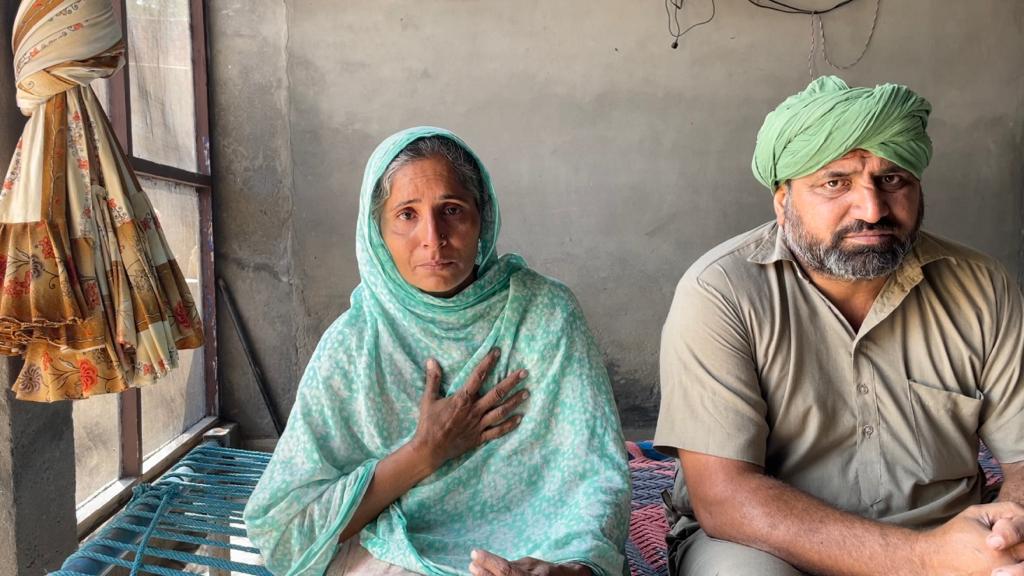
“My husband has depression, he hasn’t worked in years. [But] Happy had no interest in studies – he would tell me that he just wants to work in the fields.”
The Modi administration says the new laws address systemic problems with the way farming is managed in India, where most produce is bought at a fixed price by government-owned wholesale markets.
The system was conceived in the 1960s to boost production and tackle chronic famine, as part of India’s “green revolution”. Now that famine is a thing of the past, the government wants to open up the industry to the private sector, a move it says will encourage new investment and innovation and allow farmers to sell their produce across the country, not just to the local state-owned mandi or market.
Farmers are vociferously opposed to the changes, however, saying the laws will open them up to exploitation by business giants friendly to the government, stripping away the “minimum support price” they rely on to get by and allowing their land to be taken away by private players.
The opposition-led Punjab government, which supports the protests, has pledged to give compensation of Rs 500,000 (around £5,000) to the families of farmers who die during the demonstrations, as well as a secure government job to one next of kin.
But while Kaur says she has received the money, there has been no progress in finding her or her husband a job so far.
“At my age, when I thought I would rest and let my son take care of everything, I have lost everything,” she says. “I have to once again toil to earn a livelihood.”
The Independent spoke to half a dozen families who have lost loved ones in the continuing protests, and all blamed the three so-called “black laws” for tearing their families apart.
At 25, Gurvinder Singh has been forced to fill his father’s shoes. Parma Singh, 55, died in an accident in August on his way back from Tikri, one of the areas bordering Delhi where thousands of farmers have been camping for 11 months.
Singh, a landless labourer from Bhattal village in Punjab’s Mansa district, has left a debt of Rs 60,000 (£578) for two acres of land that he had taken on rent for the year.
A study of the socioeconomic backgrounds of over 400 of the farmers who have died in the protests, released by Punjab University in August, found that most of the deceased farmers were either landless labourers or marginal farmers with land holdings less than 2.5 acres, reported The Tribune.
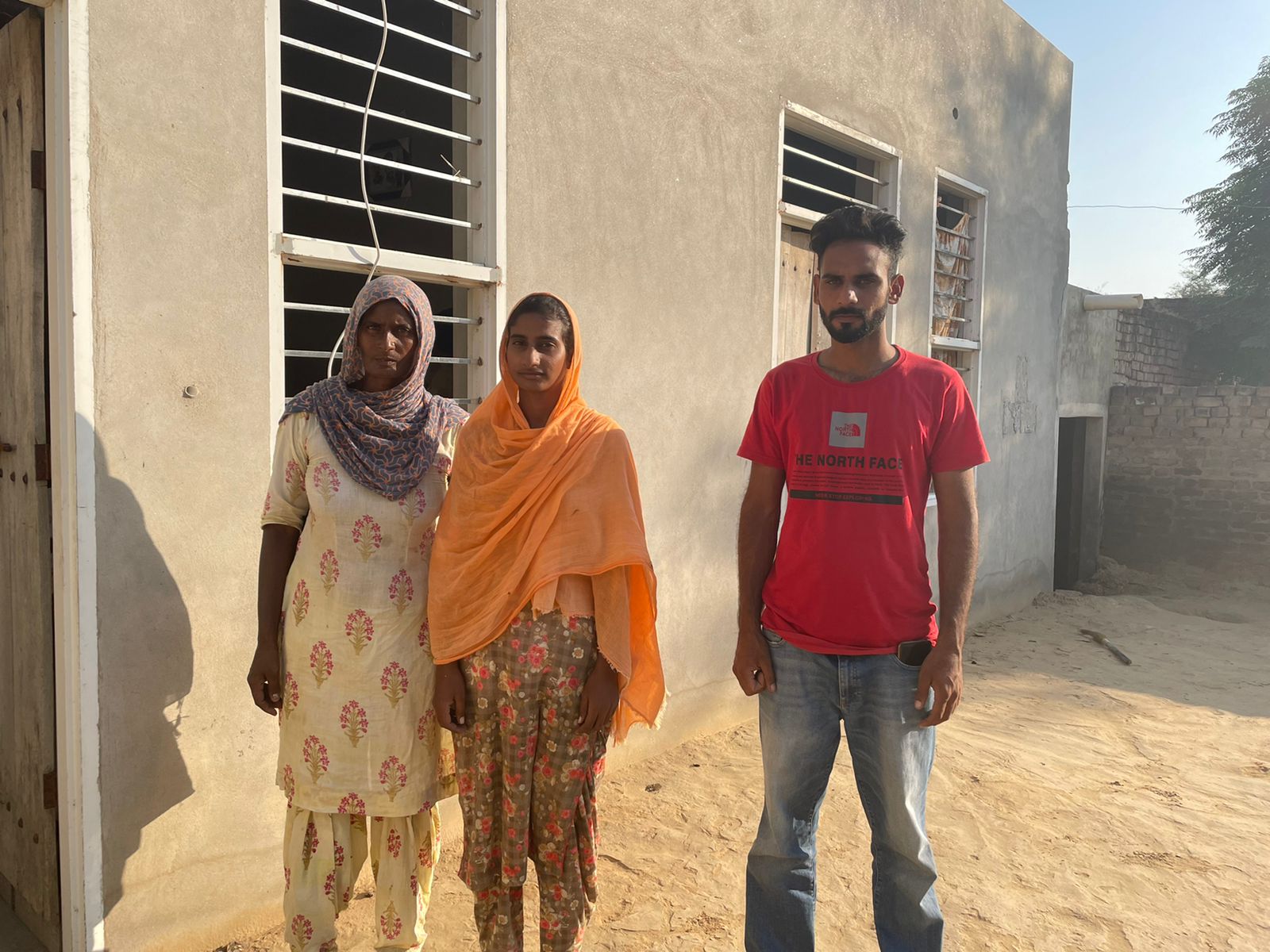
The study also found that the majority of the deceased were from areas affected by agrarian distress.
With pest attacks destroying this year’s cotton yield across Punjab, the Singhs are worried about how they will pay the rent due in November.
“Rent for our land is Rs 120,000, of which we have paid half in April. Now the second instalment is due in less than a month. The cotton yield has been destroyed completely so we have suffered huge losses,” says Gurvinder Singh.
His mother Shinder Kaur, 50, and his 20-year-old sister Harmanpreet, say that they have started work as daily wage labourers for Rs 250-300 a day in different fields to gather the money. The Singhs say they have received neither financial support nor a job offer from the government.
“Forget the compensation; even the local subdivisional magistrate hasn’t come to meet us,” says Singh.
In August, the then chief minister of Punjab, Amarinder Singh, signed off a policy to give jobs to 104 legal heirs of farmers who had died in the protests. However, the process of allotting jobs under the government’s compassionate appointment rules is time-consuming, depending on educational qualifications, age, and vacancies, among other criteria.
“They won’t repeal the laws; our children are dying while protesting and they won’t even give the promised jobs. How are we expected to survive?” Kaur asks.
Like Kaur, Dhanna Singh’s family in Mansa district’s Khiali Chahalan Wali village are also trying to fend for themselves. “No one has come to help me,” says his widow Manjeet Kaur.
Manjeet Kaur has suffered losses to the tune of Rs 50,000 (around £480) because of the failed cotton yield this year. She has employed daily labourers to help her with the land. “I have no option but to rent out my land next season. This year I have somehow managed. But I cannot any more,” she says.
Her husband was one of thousands of farmers who left for Delhi right at the start of the protests, in late November 2020. However, unlike the others, Singh never reached the capital.
“When we reached Haryana’s Ahma village, Haryana police were using trucks to barricade the roads so our tractors could not proceed to Delhi. One truck was speeding and rammed into the tractor that Dhanna Singh was in. He got crushed to death,” says Balkar Singh, a villager who was travelling with him that night.
Despite deciding to rent out her land after her husband’s death, Manjeet Kaur says that the protests must continue. She and her children have gone to Delhi several times in the last year to protest.
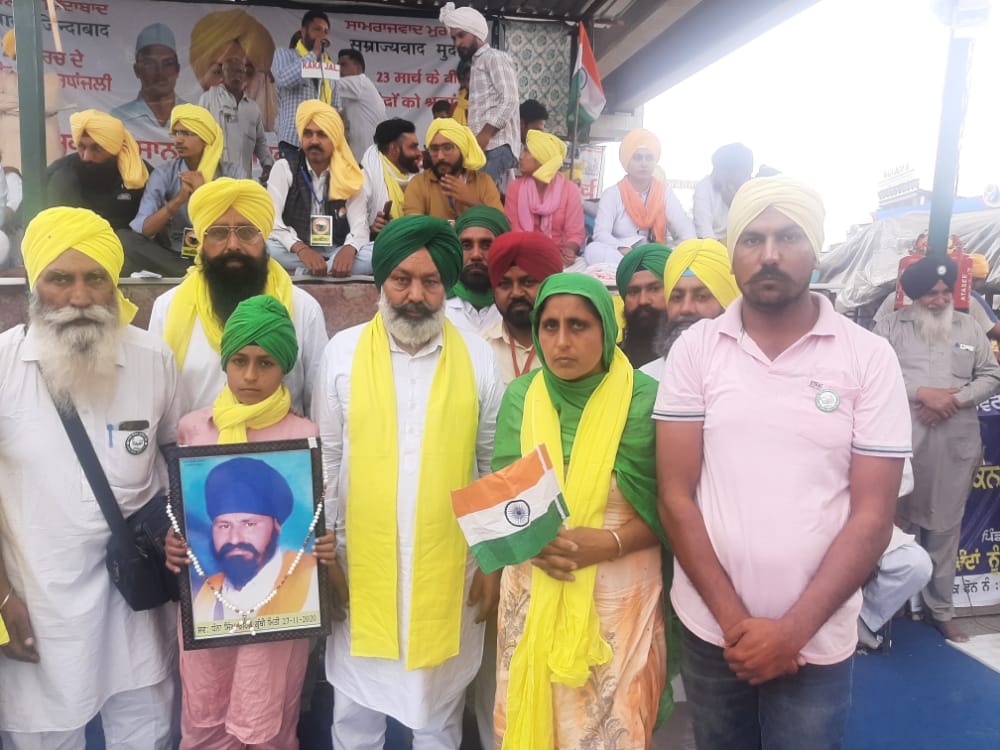
“The laws have to be repealed. God may have taken Dhanna Singh now as it was his time to go. But this won’t stop our fight,” she says.
Other families say they are being forced to sell their land after losing loved ones in the protests.
Natha Singh, 42, a resident of Chauke village in Bathinda district, lost his brother Lakha in March. Lakha died of a suspected stomach infection and fever at the Tikri border.
“My brother and I lost our parents as children. It was always just the two of us. Now he is gone, and I am left all alone,” he says.
Though Natha was given a government job in October, he says that the job came too late. “I have sold the half-acre of land that I had. I have nothing left. I have no land, no house and no family,” he says.
Many families said that the job offer and compensation, though helpful, are not a solution to the larger problem of the farm laws themselves.
“It’s like putting balm on a wound. It won’t solve anything,” says Garmail Singh, another resident of Chauke village. Singh’s 18-year-old son Jashanpreet also died of a heart attack at the Tikri border in January.
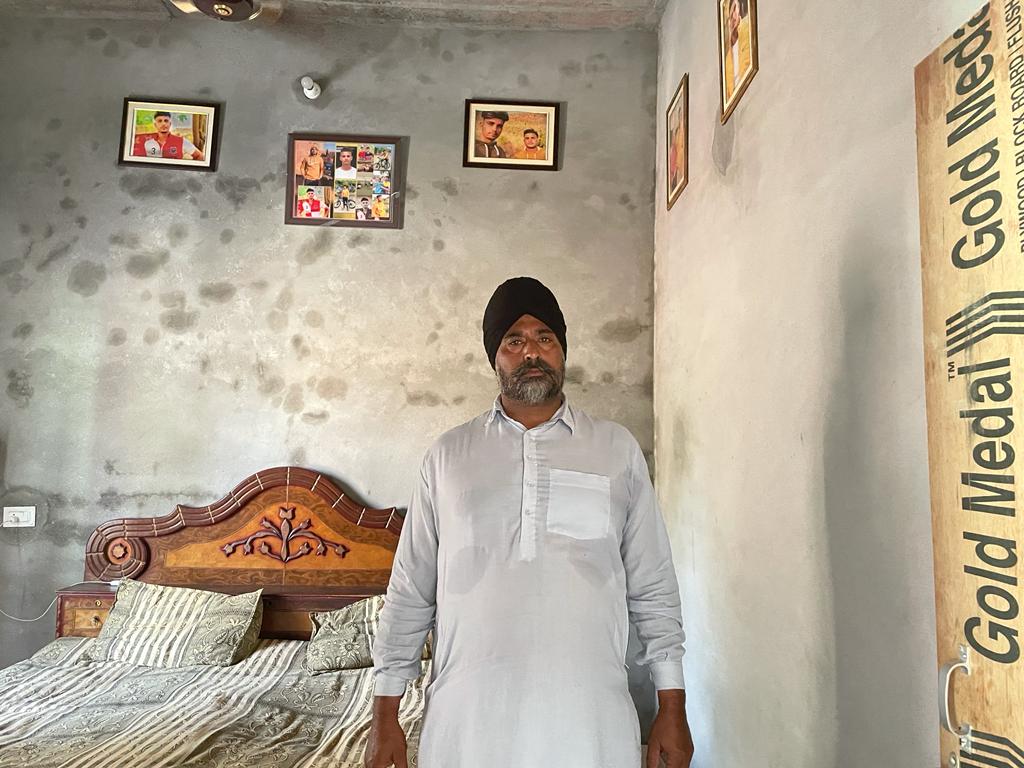
“This government job won’t bring back my son. My son always said that we must fight to get these laws repealed. With him gone, I have already rented out my land. My wife and I have lost our young son. We are just waiting for death now,” says Singh.
Talks between the government and the farmers’ unions to end the protests have remained deadlocked for nine months. The government has offered to stall the implementation of the laws for a period of 18 months and to carry out consultations, but the farmers are unwilling to accept anything short of a total repeal of the laws.
The Independent reached out to the secretary of the central Ministry of Agriculture and Farmers’ Welfare, and to Punjab’s chief secretary Sanjay Agarwal, but both declined to be interviewed.
Families say that, despite what they call a lack of empathy on the part of the government, their fight will continue.
“The least the government can do is repeal the laws,” says Nakha Singh. “Our families won’t come back, but at least we will know that their lives haven’t gone in vain.”






Join our commenting forum
Join thought-provoking conversations, follow other Independent readers and see their replies
Comments